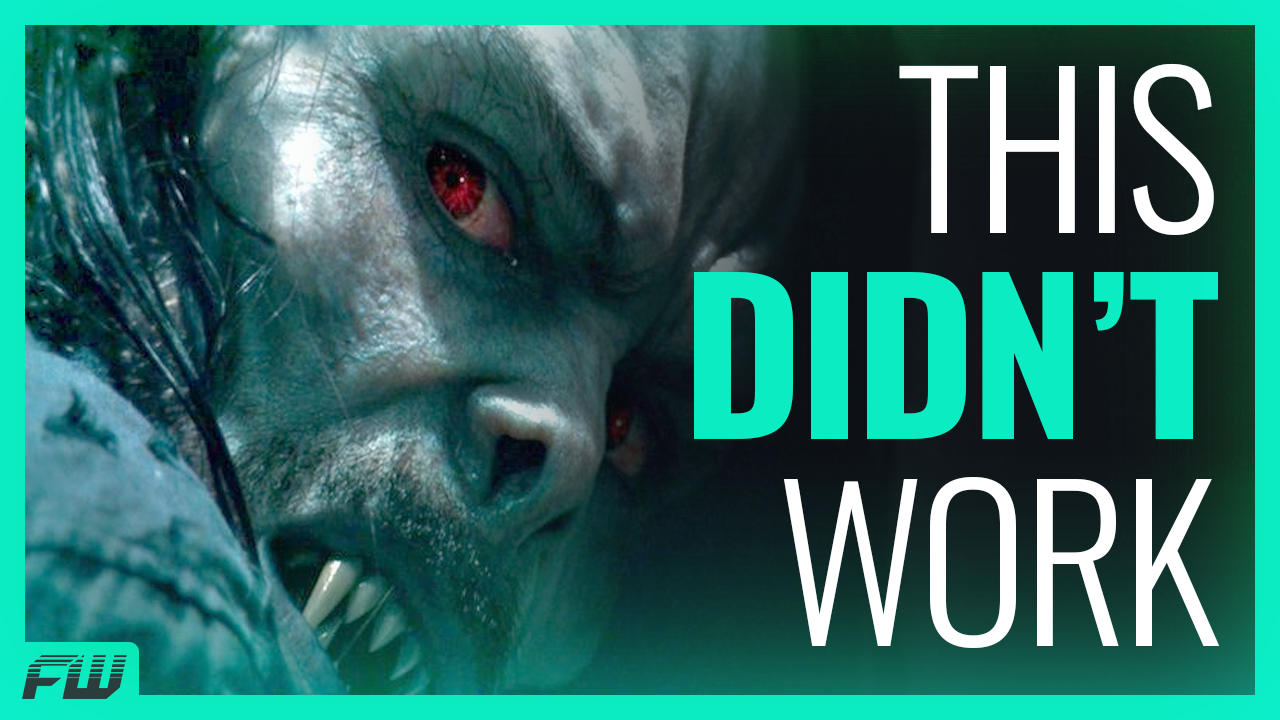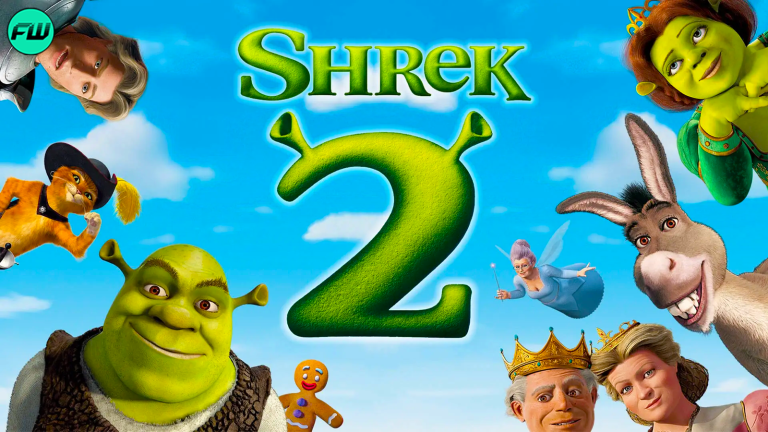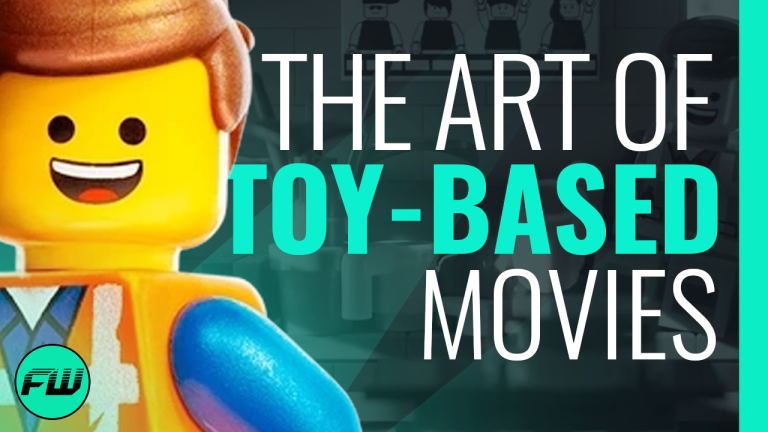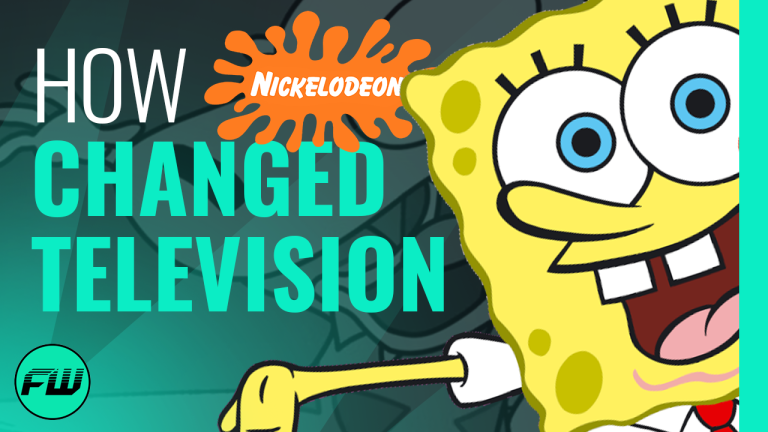Sony has, on more than one occasion, proved to stumbled in their attempts to build a cohesive Spider-Man universe for the big screen. Films like The Amazing Spider-Man and Venom have received harsh criticisms and lacked the critical and box office success of the MCU. But could Morbius be the final straw? Is this a film so incompetent that it dooms the future of the Spider-Man series for good? Join us as we dive into the mess that is Sony’s Spider-Man Universe and try to dissect exactly what went wrong.
Check out the video below:
???? Subscribe & hit the Notification Bell so you never miss a video!
Sony may have sealed their fate with the release of their latest film, Morbius. It is a film that encompasses all of the studio’s failed attempts at successfully building their Spider-Man franchise. When it all started, Sony showed promise and is to this day one of the very first to take on a comic book adaptation. However, since then it seems as though Sony has done nothing but progressively get worse with each new Spiderverse project, Morbius being the most recent example. Sony may have set the tone all those years ago, but fast forward nearly two decades, and the Sony Spiderverse will be a joke for fans to trash on. This begs the question, where did they go wrong?
To answer this question in full, we have to go way back. The year is 2002 and The Sam Raimi Spider-Man trilogy brought the pages of the most popular Marvel Comics superhero to life on the big screen, successfully, for the first time. These productions seemed way ahead of their time, and would soon become the foundation for all future comic book movies. We owe it to the first 2 installments of this trilogy with Tobey Maguire for kickstarting the superhero craze that lives within every Marvel fan to this day. So how did this all go South? Well, it started back in 2007 with the release of Spider-Man 3, the worst and the final installment of the Sam Raimi Spider-Man trilogy. Following the success of their previous two films, Raimi and Maguire were set to reunite for a third film, which was meant to showcase the unfolding of a Spider-Man vs Sandman story. However, Sony had other plans, and this is when the first of many mistakes were made.
The issue is called “fan service”, a common reference heard in association to comic book movies in particular, and Sony fell right into its trap. The third Spider-Man movie was so overstuffed with new characters that the story elements were lost along the way, giving audiences no time to understand each character and what their motives were. Sony saw an opportunity to “make more money” and enhance marketability by giving fans what they THINK they want, rather than the strong deliverance of a Spider-Man story that stays true to the comics and flows smoothly just the same. Sam Raimi’s vision for the final film in the Spider-Man trilogy was lost, and from here there was no going back.
Despite mixed reviews, Sony announced a fourth Spider-Man film set to star Tobey Maguire yet again as the heroic web-slinger, but due to creative differences between Raimi and the studio, the film was scrapped in 2010, and Raimi, respectfully, was much better off for it.
This, however, did not stop Sony from trying again, and things seemed to be back on the uprise for this formerly doomed Spiderverse. The debut of Andrew Garfield as Sony’s reboot Spider-Man in The Amazing Spider-Man released in 2012, and later returned for a sequel in 2014, and yet again the studio couldn’t get it right. The stall here was not entirely an issue of “fan service”, which indicated Sony learned at least one thing from the collapse of Spider-Man 3, but that alone was not enough to save this reboot in the end.
As we dive into the unsuccessful attempts to spark a new flame in the franchise, there are several factors to take into consideration. Sony has ruined the Spider-Man movies ever since they forced Venom and other characters into the production of Raimi’s Spider-Man 3, and the result is unsatisfying, to say the least. Despite not trusting the visions of a talented director once before, they decided to do so yet again in both Amazing Spider-Man films, both Venom films, and in Morbius. Although, Venom and Venom: Let There Be Carnage received plenty of fans’ approval in “enjoying them for what they are”, the box office numbers reflected this, which is a miracle in itself.
Even though Garfield delivered an incredible performance as The Amazing Spider-Man, and was ultimately enjoyed by a majority of fans, it did not stick the landing for many critics of the film, concluding that they could not properly connect with this new storyline. This was due to Sony’s rush to prove that Andrew Garfield’s Spider-Man was capable of building a universe that could rival that of the MCU. Whether it was Sony’s intention to build characters or not, it was not a smart move to try and build up a sinister six-type event in just one or two films. The effects of this were costly, ultimately putting a stall on this Spider-Man universe after only two films, and unfortunately, all plans to continue with a third film were scrapped.
Later, in 2018, the release of Venom, played by the talented Tom Hardy, introduced a new rendition of the character, as well as an innovative way to get the franchise going again. Does this mean the Sony Spiderverse is saved? No, far from it. Both Venom and Venom: Let There Be Carnage looked and felt as if they were produced to display the most basic concept of superhero film formulas. These films did not flow, and stories didn’t add up, and the choppiness provided a rocky understanding of what each film’s goals were. The sole appeal of these two films, and of most Sony Spiderverse productions, are the collections of incredible talent, such as Tom Hardy, Woody Harrelson, Jared Leto, Matt Smith, and so on.
That being said, Sony’s number one priority is to make money, and that has been made abundantly clear, if not through the overstuffing of their films and the acquisition of grand talent, then through the ethically questionable marketing strategies, as used for their latest film, Morbius. Ethically questionable is an understatement for Sony’s sake when in reality there were many falsely advertised characters and events in the trailers and teasers for this film that ultimately disappointed fans drastically. The marketing strategy for this film was in such shambles that its own director, Daniel Espinosa, was sharing spoilers regarding the film itself and even the post-credits scene; now if this does not seem like a desperate attempt to get people on the Morbius wave then I don’t know what is.
Before we get into it, it’s important to establish right here and right now that Morbius was a bad movie, through and through, and there was no amount of false advertising or over-stuffing that can change that fact. The talent was there, but the problem lies in the storytelling, or the lack thereof.
Morbius is without a doubt the most telling example of what Sony has been doing wrong. In the early Spider-Man days, it was okay to make these kinds of mistakes. The studio was learning how to adapt the superhero genre into the live-action arena, and despite their issues, they were so far beyond their time. As Sony developed over the years, they improved, but not quite enough to satisfy the needs of building a cinematic universe. However, you would think that after 20 years, several failed attempts to learn from, and being associated with the cinematic giant Marvel Studios, Sony would have developed a successful plan of action when it came to their Spider-Man projects. Yet, here we are in 2022 with a film like Morbius.
Morbius almost seemed like a film that was meant to be a “what not to do” example for film study students, because it broke almost every rule in cinema. Aside from their marketing strategies, this film was doomed no matter what. Granted, this was a film whose release date changed several times due to covid related issues, and many films have suffered similar issues in the same way, but that hardly excuses the fact that the film is rushed, unorganized, and creates no connections for the audience to hold on to.
The first thirty or so minutes of the film crammed in way too much storytelling to the point where it was choppy, hard to follow, and did not allow the audience to feel anything for Dr. Morbius. When he becomes the living vampire, no one understands his motives or cares what happens to him. This is a problem, considering that the way a franchise grows is by audiences WANTING it to grow BECAUSE they want to see more of their favorite characters, and Morbius failed at that.
There is also the matter of the ineffective use of special effects, which makes this film feel like it was meant to release in 2003 before Daredevil, not in 2022 where special effects innovation is skyrocketing. Not to mention the repetitiveness and lack of development for Morbius, as a character and through the use of his powers, as the film progressed. Overall, Morbius was a film that encapsulates everything that has ever been wrong with numerous Spider-Man projects developed by Sony Pictures; wow.
What’s more is that prior to the release of Morbius, Sony had managed to exceed expectations with a film that many of you are very familiar with.
After a partnership break since 2019, Sony Pictures and Marvel Studios finally set aside their differences and created cinematic history, forging one of the most iconic superhero crossover films of all time. Spider-Man: No Way Home was the greatest success that Sony had ever seen in association with a Spider-Man project, as it now sits in the sixth spot for highest-grossing films of all time. Sony Pictures ended 2021 with a victory so grand that it revitalized the faith of Marvel fans in the studios’ capabilities, and opened up some extraordinary doors of opportunity to be explored with the expansion into the multiverse.
So why exactly did Sony find it okay to bring home such a worthy success like No Way Home, and completely uproot that in Morbius, or more specifically, in the distasteful post-credit scene that followed? As a viewer, it’s frustrating to go into a film expecting one thing, and getting something so drastically wrong. What Sony has consistently failed to do with each new Spiderverse project is allow a story to unfold smoothly and organically, which is the most prominent difference between Sony and Marvel Studios.
The post-credit scene of Morbius is yet another prime example of Sony’s latest issue; a lack of understanding for the story, a blatant disregard for rules established in a previous film, and the rush of something that is far from ready to begin. Where will it end? How far does Sony get before the damage they cause in their own franchise leaks into the success established by the MCU? When are they going to take the hint that they are not doing anyone any justice, especially themselves?
The MCU did Sony a favor, giving them the opportunity to hit the refresh button on their franchise and kickstart a new wave that would lead into success of their own. However, it is clear the studio has no plans to change their ways, and in due time they will run out of support to keep the franchise going, and will eventually profit more from selling the rights to Marvel Studios entirely, but that is a discussion for another time.
Do you think that Sony’s Spiderverse can survive? Or will it dissolve into a crumbling dust like Spider-Man after Thanos’ snap? Let us know in the comments. Be sure to hit the like button if you enjoyed this video and subscribe so you never miss a video. I’ll see you next time.
Follow us for more entertainment coverage on Facebook, Twitter, Instagram, and YouTube.








